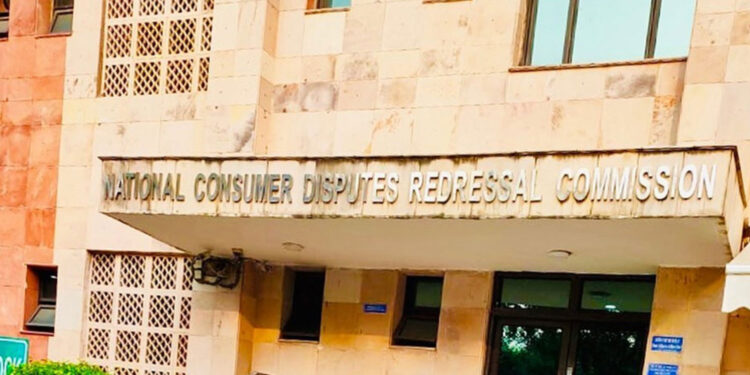Recently, a division bench of the Rajasthan High Court, citing lack of jurisdiction, overturned the decision made by its single-judge bench that had quashed the orders of the National Consumer Disputes Redressal Commission (NCDRC).
Earlier, the Jaipur Development Authority had filed an appeal against the State Consumer Dispute Redressal Commission’s (Jaipur) decision before the NCDRC. However, the Commission rejected this appeal on 14.06.2022 due to the non-appearance of JDA’s counsel. Subsequently, an application to reconsider this decision was also dismissed by the NCDRC on 13.04.2023.
The Division Bench, consisting of Justices Pankaj Bhandari and Bhuwan Goyal, ruled that the single-judge bench of the High Court did not have the jurisdiction to consider the writ petition filed under Article 227, which pertains to the power of superintendence over all courts within its territorial jurisdiction. This petition challenged the NCDRC orders dated 14.06.2022 and 13.04.2022.
Justice Anoop Kumar Dhand, sitting as a single-judge bench, also reinstated the appeal before the NCDRC to its original number for a fresh adjudication.
In a separate development, the court noted that the single-judge bench erroneously referred to Article 226 instead of Article 227 in its order, despite the writ petition being originally filed under Article 227. As a result of these errors, the division bench, in response to the special civil writ filed by consumer-complainant Rajeev Chaturvedi, annulled the order dated 19.01.2023 issued by the single-judge bench. The High Court has also allowed the Jaipur Development Authority (JDA) to approach the appropriate High Court with jurisdiction to hear the challenge against the NCDRC’s orders.
Prior to arriving at the aforementioned conclusion, the division bench deliberated on the precedents set in Union of India v. Alapan Bandyopadhyay, 2022 LiveLaw (SC) 12, and M/S Universal Sompo General Insurance Co. Ltd. v. Suresh Chand Jain & Anr. 2023 LiveLaw (SC) 567.
In Alapan Bandyopadhyay, the Supreme Court emphasized that any decision of a tribunal, including those made under Section 25 of the Administrative Tribunals Act, 1985, can only be reviewed by a High Court with territorial jurisdiction over the tribunal in question. Referring to the Constitution Bench decision in L. Chandra Kumar v. Union of India, the apex court clarified that all decisions of tribunals created under Article 323A and Article 323B of the Constitution are subject to scrutiny by a Division Bench of the High Court within whose jurisdiction the tribunal is located.
Likewise, in M/S Universal Sompo, a bench comprising Justices J.B. Pardiwala and Manoj Misra ruled that when the aggrieved party has the option to approach the High Court, invoking its writ or supervisory jurisdiction, the Supreme Court should not entertain a petition seeking special leave. The Division Bench also clarified that special leave to appeal is only applicable to orders issued by the NCDRC in its original jurisdiction.
“…According to M/S Universal Sompo General Insurance Co. Ltd. (supra), the petitioner should initially approach the High Court with jurisdiction either through a writ petition under Article 226 or by invoking the supervisory jurisdiction of the High Court under Article 227… Since the writ petition was filed under Article 227 of the Constitution of India seeking to quash the orders passed by the NCDRC in New Delhi, the Rajasthan High Court was not the appropriate High Court with jurisdiction…”
n 2017, the Rajasthan State Consumer Disputes Redressal Commission ordered the Jaipur Development Authority (JDA) to deposit Rs. 46,40,400/- along with interest at 9% from the date of each deposit in favor of the complainant. Additionally, it was ruled that the complainant should receive Rs. 2,00,000/- as compensation for mental agony and Rs. 50,000/- as the cost of the proceedings, with interest at 9% from the date of the order. The JDA purportedly deposited this amount due to an interim order issued by the NCDRC in the appeal. Subsequently, after the JDA made the deposit, the appeal itself was dismissed in default for want of prosecution.

















